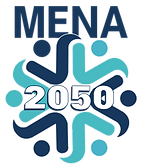Unlocking the Untapped Power of Heritage Tourism in the MENA Region

The Middle East and North Africa (MENA) region holds a rare and extraordinary position in the global cultural landscape. As the cradle of civilization and the birthplace of major world religions, MENA is home to a breathtaking diversity of historic sites—many of which remain unknown, underfunded, or left out of the world’s tourism imagination. These places are not simply forgotten; they are waiting—waiting for vision, investment, and above all, a regional effort to turn memory into movement.
Today’s global travelers seek more than just luxury or relaxation — they search for meaning, connection, and authenticity. This shift presents a major opportunity for the region. From the ancient cities buried under desert sands to the lesser-known mountain monasteries, caravanserais, and Roman ruins, the MENA region offers stories the world is eager to hear. But many of these sites are not accessible.
They’re not promoted in international campaigns. Some don’t even have a road leading to them or signage explaining their significance. The barrier is not one of interest, but of integration. The assets exist — they simply haven’t been positioned as a strategic priority.
The underdevelopment of cultural tourism is not merely an oversight. It reflects deeper systemic issues: fragmented tourism policies, short-term thinking, and a persistent global narrative that frames the region through the lens of instability. While some parts of MENA face real political challenges, others are safe, vibrant, and ready for visitors. Still, outdated perceptions persist, often reinforced by media coverage that overlooks the region’s cultural richness and human diversity.
This perception gap is not just harmful — it’s costly. It keeps local communities from benefiting from sustainable tourism economies. It leaves behind generations of young people who could be working as local guides, heritage site curators, artisans, or digital storytellers. It also allows the world to continue forgetting the profound role the region has played — and continues to play — in shaping human civilization.
The real tragedy is not that the stories aren’t there. It’s that they haven’t been told well, or together. A siloed, national approach to tourism has prevented the region from harnessing its full collective power. But what if that changed? What if countries collaborated on cross-border heritage initiatives — recreating ancient trade routes as cultural corridors, connecting coastal cities through shared Mediterranean histories, or linking Islamic, Christian, and Jewish sites into pluralistic narratives of coexistence?
This would not be charity. It would be a strategy.
When thoughtfully designed, tourism is a tool for diplomacy, resilience, and regional integration. It creates jobs, supports small businesses, empowers women, and builds bridges between cultures. It also fosters a sense of pride in one’s past, especially when local communities are not just passive observers but active participants in shaping how their stories are told.
Heritage tourism, however, must evolve. It cannot be limited to static monuments and dusty museums. It must engage with innovation, education, and digital platforms. Universities, youth-led startups, and creative industries should be central in this reimagining.
The region can reach a broader and more diverse global audience by developing immersive experiences, virtual tours, and multilingual narratives — from schoolchildren to scholars, spiritual seekers to sustainability advocates.
The path forward is clear.
The region’s vast cultural memory is not just an economic opportunity — it’s a geopolitical advantage.
Soft power today is not only built through embassies, but through storytelling. And some of the greatest storytellers may be the very places that are overlooked: ruins on a hilltop, mosaics beneath the sand and languages carved into stone.
MENA2050 Gathering at Château d’Ermenonville in France: Advancing Regional Solutions for Food and Water Security

This past weekend, MENA2050 convened a select group of members from across the Middle East and North Africa at the historic Château d’Ermenonville in France. The meeting’s focus was twofold: to deepen regional cooperation around food and water security and to explore innovative approaches to tackling these interlinked challenges at a time of escalating climate and geopolitical uncertainty.
Set in an atmosphere of reflection and forward thinking, the gathering opened with a strategic conversation on water security, a core challenge with profound cross-border implications. The session featured in-depth discussions on sustainable water management, shared resource governance, and the role of technology and diplomacy in preventing future water conflicts.
The second day of the conference focused on food security in the MENA region. Participants exchanged experiences and best practices—from scaling regenerative agriculture and climate-smart farming to building stronger policy ecosystems that support local innovation and sustainability.
Then, the conference focused on a case study of the Food-Water-Energy nexus.
Throughout the gathering, participants emphasized the urgency of translating dialogue into action. The weekend featured breakout sessions dedicated to building actionable pilot initiatives, identifying potential regional collaborations, and surfacing opportunities for multilateral engagement.
The serene and historic setting of Château d’Ermenonville provided a powerful backdrop for honest exchange, trust-building, and strategic alignment. The conversations were candid, focused, and infused with a spirit of mutual respect and shared responsibility.
We are deeply grateful to all those who took part in this important meeting. Your insights, energy, and commitment helped shape a meaningful step toward building a more resilient and cooperative future for the MENA region.
MENA2050 remains dedicated to fostering these types of high-trust, high-impact conversations—and to supporting concrete efforts that bridge borders and deliver solutions where they are most needed.
France and MENA2050: Shared Visions for Regional Cooperation

As part of our ongoing effort to deepen dialogue and cooperation between Europe and the MENA region, MENA2050 CEO Eli Bar-On held a series of high-level meetings in Paris this month with senior French officials and thought leaders. These meetings were made possible thanks to the kind support of Ms. Valérie Hoffenberg, MENA2050’s Special Representative in Paris.
Among the highlights was a private and insightful conversation with former French President Nicolas Sarkozy, who shared his unique perspectives on regional diplomacy and strongly supported MENA2050’s mission to foster a more stable and integrated MENA region. President Sarkozy offered valuable advice and encouragement, emphasizing the need for visionary leadership and long-term cooperation. He also generously offered his assistance in advancing MENA2050’s goals.
The CEO also met with Benjamin Haddad, France’s Minister Delegate for European Affairs. Their forward-looking exchange centered on the shared opportunities and challenges facing Europe and the MENA region. They discussed the importance of inclusive partnerships, practical solutions for regional development, and specific initiatives MENA2050 is promoting to strengthen ties between the EU and the MENA region.
At the Élysée Palace, Mr. Bar-On met with Anne-Claire Legendre, the French Envoy to the MENA region. Their discussion focused on concrete avenues for collaboration between France and MENA2050, including joint projects to advance regional integration, economic growth, and innovation.
These Paris engagements represent another meaningful step in building bridges between France and the wider MENA region through MENA2050. We are deeply grateful to our French partners for their openness and shared commitment to positive transformation and look forward to continuing our joint action.
Eli Bar-On, CEO of MENA2050, Represents MENA2050 at the 2025 Lennart Meri Conference

From May 16–18, Eli Bar-On, CEO of MENA2050, participated in the 18th Lennart Meri Conference (LMC) in Tallinn, Estonia – one of Europe’s leading forums on foreign and security policy. Representing MENA2050, Eli spoke on a high-level panel titled “The Axis of Upheaval and Its Impact on Global Power Politics,” addressing the strategic realignments among Russia, China, Iran, […]
Addressing the Water Crisis in the MENA Region: Insights from The Young Leaders Academy
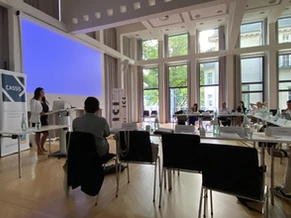
In June 2024, I had the privilege of representing MENA2050 as a speaker at The Young Leaders Summer Academy held at Bonn University. My presentation focused specifically on the water crisis in the MENA region, a pressing challenge that exacerbates food insecurity and drives human migration, particularly in conflict zones.
The MENA2050 Regional Vision Team Opinion Note : Integrating the EU and MENA Power Systems
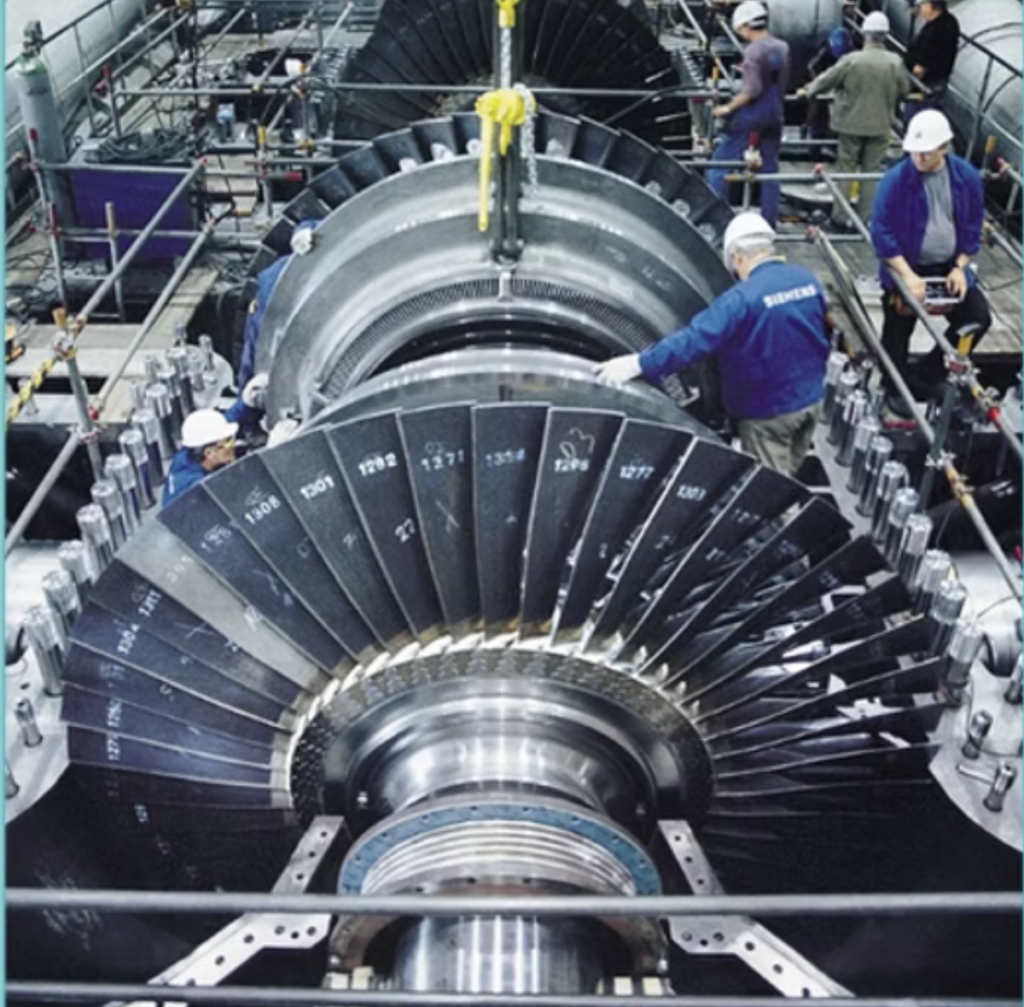
The MENA2050 Regional Vision Team Opinion Note Integrating the EU and MENA Power Systems Authors: Omar Al-Ubaydli, Layal Alghoozi, Noora Alozaibi, Arnon Bersson, Noor Elgallal, Ben Grischeff, and Munya Yusuf; with support from ChatGPT in writing certain passages and conducting background research. Disclaimer: The opinions expressed in this note are those of the authors and […]
Leveraging OPEC to Enhance MENA Cooperation
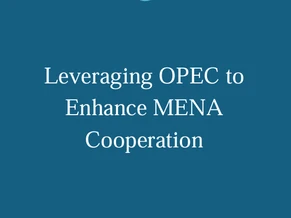
The MENA2050 Regional Vision Team Opinion Note Leveraging OPEC to Enhance MENA Cooperation November 2024 Authors: Omar Al-Ubaydli, Layal Alghoozi, Noora Alozaibi, Arnon Bersson, Noor Elgallal, Ben Grischeff, and Munya Yusuf; with support from ChatGPT in writing certain passages and conducting background research. Disclaimer: The opinions expressed in this note are those of the authors […]
Ariel Ezrahi, Head of the MENA2050 Energy Transition Committee, Publishes an Article on Energy and Sustainability in the MENA Region
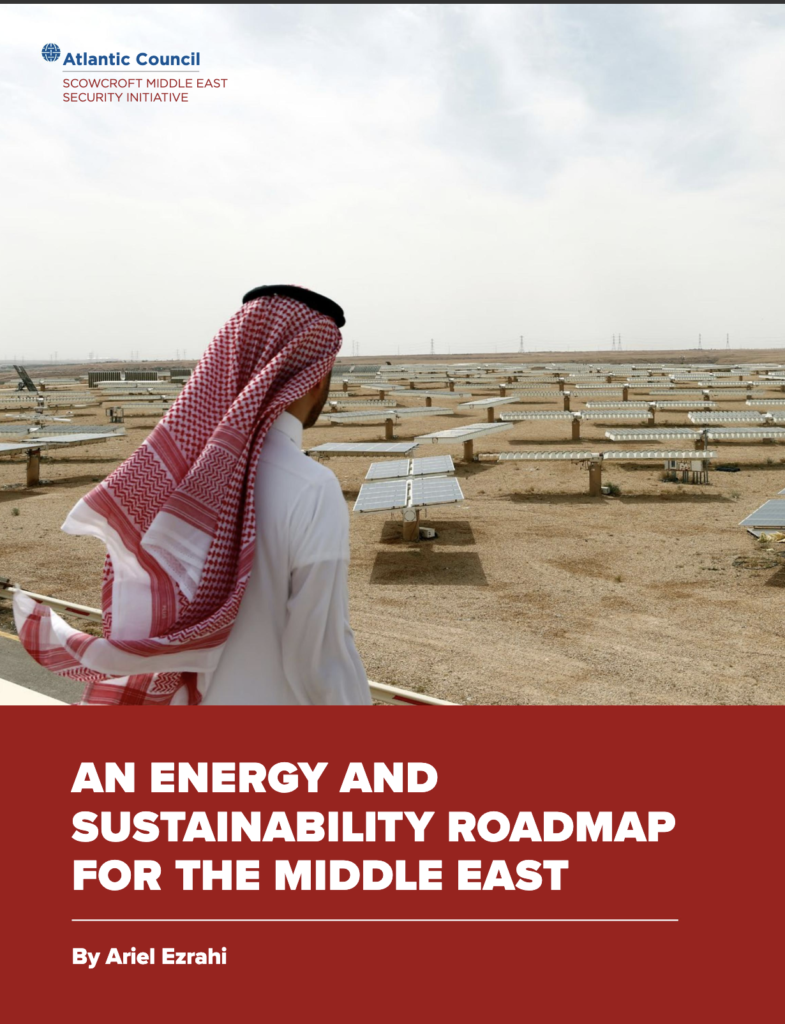
Ariel Ezrahi, Head of the MENA2050 Energy Transition Committee, has written an insightful and thought-provoking article for the Atlantic Council titled “An Energy and Sustainability Roadmap for the Middle East.” In this engaging piece, Ezrahi leverages his extensive expertise in energy diplomacy and sustainability, offering a comprehensive analysis of the region’s energy challenges and opportunities. […]
Sovereignty Vacuums and the Revival of International Trusteeship: Toward a GlobalMechanism for Managing Chronic State Failure
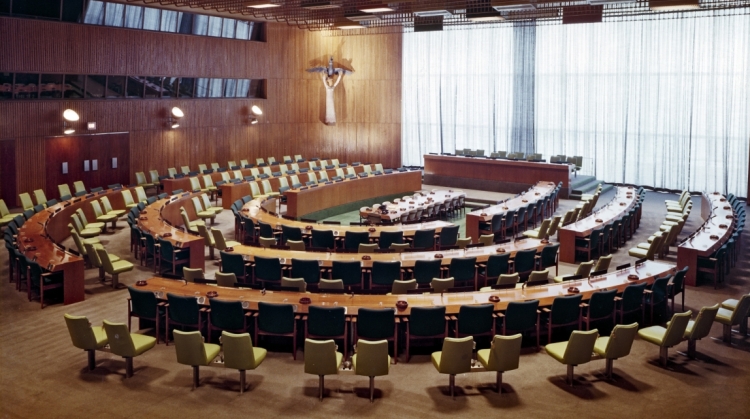
By Dr. Najwa AlSaeed As the crises of failed states intensify and cross-border threats proliferate, the notion of international trusteeship has resurfaced in political and strategic discourse—albeit in a modernized form distinct from the post–World War II model. Historically, trusteeship emerged under the United Nations system to manage the decolonization process in a structured and […]
Strategic AI Diplomacy: How Sheikh Tahnoon’s Washington Visit Signals a UAE-US Tech Alliance and Eases Tariff Pressures

By Dr. Najwa AlSaeed In the shifting landscape of global power, Sheikh Tahnoon bin Zayed Al Nahyan’s visit to Washington D.C. from March 18 to 24, 2025, marked more than just a diplomatic occasion; it signaled a deliberate repositioning of the UAE at the intersection of technological transformation and geopolitical realignment. Welcomed by President Donald […]
